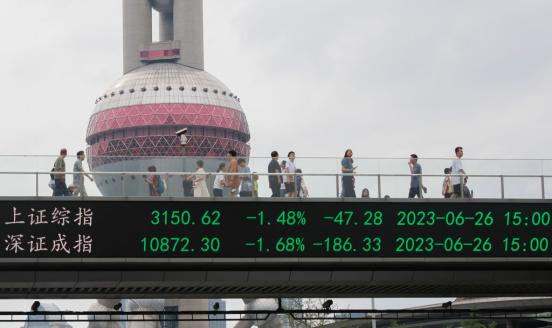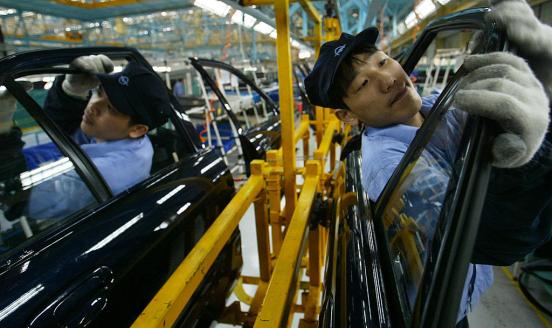How could Europe benefit from the US-China trade war?
Under pressure from the US, Beijing is set to be more open to making new allies.
The European Union and Donald Trump got off to an awkward start. Initially, the U.S. president seemed to want to take on the world, confronting China and his country’s long-time allies alike.
More recently, however, tensions between the U.S. and the Europe have calmed — especially as Trump has turned his focus squarely on China. This provides the EU with an important opportunity it must not waste — to use the pressure on China to more clearly set the rules of engagement with Beijing.
There are many reasons why Trump may have shifted his crosshairs. They include worries about Beijing’s rise and the perception that competition from China has cost the U.S. jobs in important economic sectors.
Trump also seems to have realized that the EU remains an important ally — despite its trade surplus. Commission President Jean-Claude Juncker diplomatic success has also helped — even if the truce remains fragile. The question now becomes: How can Europe benefit from the U.S.-China trade tensions?
At first blush, it doesn’t look great. Trade wars aren’t just easy to lose; they also cause collateral damage to companies in third countries because of globally integrated supply chains. The German carmaker Daimler, for example, blamed a recent profit warning on the U.S.-China trade war, warning that it would make its exports more expensive.
But trade wars also create opportunities for companies and sectors in third countries. One might see European agriculture exports to China increase, for example, as they replace products once sourced from the US. European companies manufacturing consumer goods could benefit from rising export opportunities in the US.
But the trade war also offers Europe a far larger opportunity. Under pressure from the U.S., Beijing is set to be more open to make new allies.
So Trump has announced a 10% tariff on $200 billion-worth of imports from China, and threatened to increase the percentage to 25% if Beijing does not end its "unfair” trading practices. China has, in turn, announced counter-tariffs on some $60 billion-worth of imports.
True, China is less vulnerable to a trade war than it would have been a few years ago, having rebalanced its economy away from exports. But Beijing can’t afford having Japan, the U.S. and the EU form a united front as they recently did with a declaration on forced technology transfer that was clearly targeted at China.
Beijing is therefore actively reaching out to Brussels, trying to advance talks on bilateral investment and aiming to start negotiations on a trade agreement. China would also like to see the EU as a strategic partner in the World Trade Organization.
This gives EU officials an important opening. The bloc’s key interests are clear: China needs to open up its markets to more sectors.
European investment in China has been falling for years as market access has become more difficult. Europe needs to ensure that Beijing treats European companies on an equal footing to their domestic ones. It must also insist that it remove unfair subsidies delivered through state owned banks and other state owned companies.
China, of course, will not fundamentally alter its economic model. But there’s reason to believe it’s ready to make some concessions.
European leaders also need to work with Beijing to address concerns at home. As China has found it more difficult to invest in the U.S., it has moved its investment efforts to Europe — especially in cutting edge technology.
European companies and politicians have observed this rise with mixed feelings. Of course, Chinese investment is welcome and can increase corporate profits, especially when access to Chinese markets is improved.
But there is a clear worry that China uses market manipulation and subsidies to buy companies at unfair prices. Security concerns about sensitive technologies have also been raised. The EU needs to define its red lines on Chinese technology acquisition and enforce them more vigorously.
The overall upshot is clear. Whatever the economic spillover of the U.S.-China trade war, there is diplomatic advantage to be gained. It’s up to Europe’s leaders to formulate a unified strategic position and explore the opportunity.







